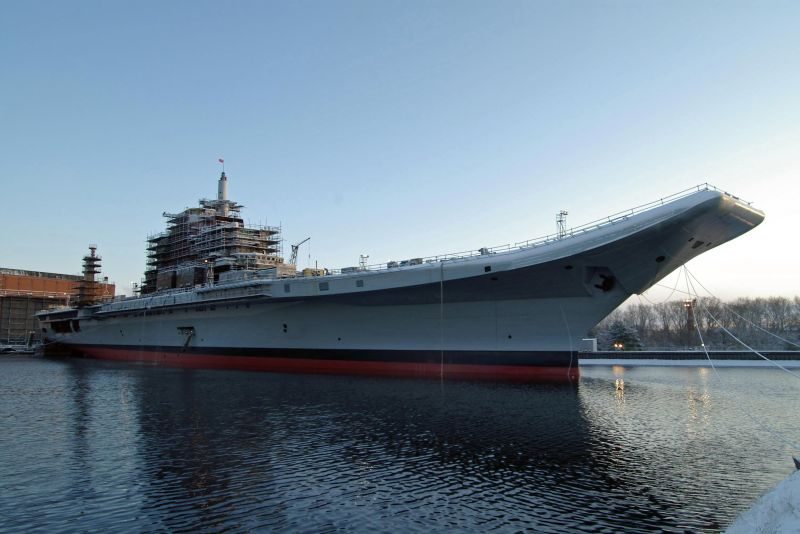India launched a new naval research centre for warships on Tuesday, part of efforts by the South Asian giant to build its sea defences and counter the perceived threat of China in the Indian Ocean.
Defence Minister A.K. Antony laid the foundation stone for the National Institute for Research and Development in Shipbuilding (NIRDESH) in the southern state of Kerala, which will be built at a cost of six billion rupees (133 million dollars).
The facility, which will be up and running in two years, will help develop technology for “drawing board to delivery” of warships for India, a naval official said.
The Kerala unit will work independently of the national Defence Research and Development Organisation, with the aim of reducing India’s dependence on military imports, which mostly come from Russia.
The 136-vessel navy said in a statement that NIRDESH would ensure India’s maritime security.
“This would empower Indian navy, coastguard and other maritime security agencies in a manner befitting the country’s stature and influence in the region,” it said.
The facility would “ensure that the country would be self-reliant in this crucial area of defence technology,” Antony added.
New Delhi is wary of growing Chinese influence around the Indian Ocean, where Beijing has funded or plans to invest in major infrastructure projects, including ports in Sri Lanka, Bangladesh and military-ruled Myanmar.
In August, two Chinese warships raised eyebrows in Delhi when they sailed to adjoining Myanmar for a rare visit to promote ties between the two allied countries.
Retired admiral Arun Prakash, a former Indian naval chief, recently warned that the Chinese navy will have more warships than the United States within a decade and urged India to speed up naval procurement.
Analysts say India falls behind China in naval firepower, but the country should strive for supremacy in the strategic Indian Ocean, a vital shipping lane connecting Asia to Europe and the Middle East.
“Just because we cannot compete with China does not mean we do not defend our interests in the Indian Ocean where we want naval supremacy,” retired Indian navy rear admiral Raja Menon told AFP.
India has already begun strengthening its military presence in the Andaman archipelago, which lies south of Myanmar, as part of plans to protect its interests in the ocean.
Delhi, which wants to boost its 14-strong submarine fleet, launched its first nuclear-powered submarine in 2009 and has invested in its military shipyards to start building an aircraft carrier and stealth frigates.
It also plans to buy eight long-range maritime spy planes by 2015 besides six Franco-Spanish Scorpene submarines for which orders were placed in 2006.
According to the Stockholm International Peace Research Institute, China’s military spending was the second-largest in the world, after the United States, in 2009.
KPMG consultancy firm estimates India plans to spend 112 billion dollars on defence hardware between now and 2016.
India hiked its 2010-2011 military spending by four percent to 32 billion dollars but analysts like Menon warn that the navy’s share of 16 percent of the defence allocation is insufficient for funding its expansion plans.
India and China fought a brief border war in 1962 and still have unresolved territorial disputes.










